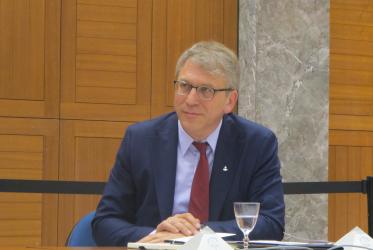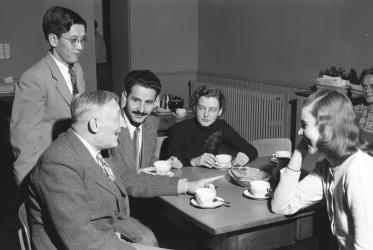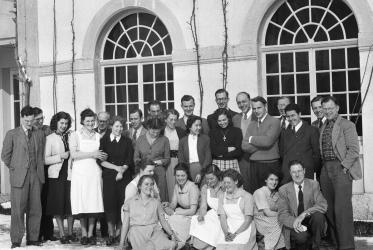Displaying 161 - 180 of 304
14 February 2017
An interview with the Ethiopian Patriarch, Abune Matthias
14 February 2017
Churches in Norway and Pakistan break new ecumenical ground
26 January 2017
Plans for 2017 decided by WCC Executive Committee
01 December 2016
In Syria and Iraq, minorities must come out of the darkness
28 November 2016
What does ‘prudence’ mean for dialogue and peace-building?
16 November 2016
Grand Imam calls for collaboration against violence and poverty
06 October 2016
WCC welcomes Grand Imam of Al-Azhar
01 October 2016
Bossey anniversary commemorates 70 years of heartfelt dialogue
28 September 2016
WCC’s Bossey institute celebrates 70 years with array of events
23 September 2016
Religious leaders of many faiths talk peace in Assisi
21 September 2016











